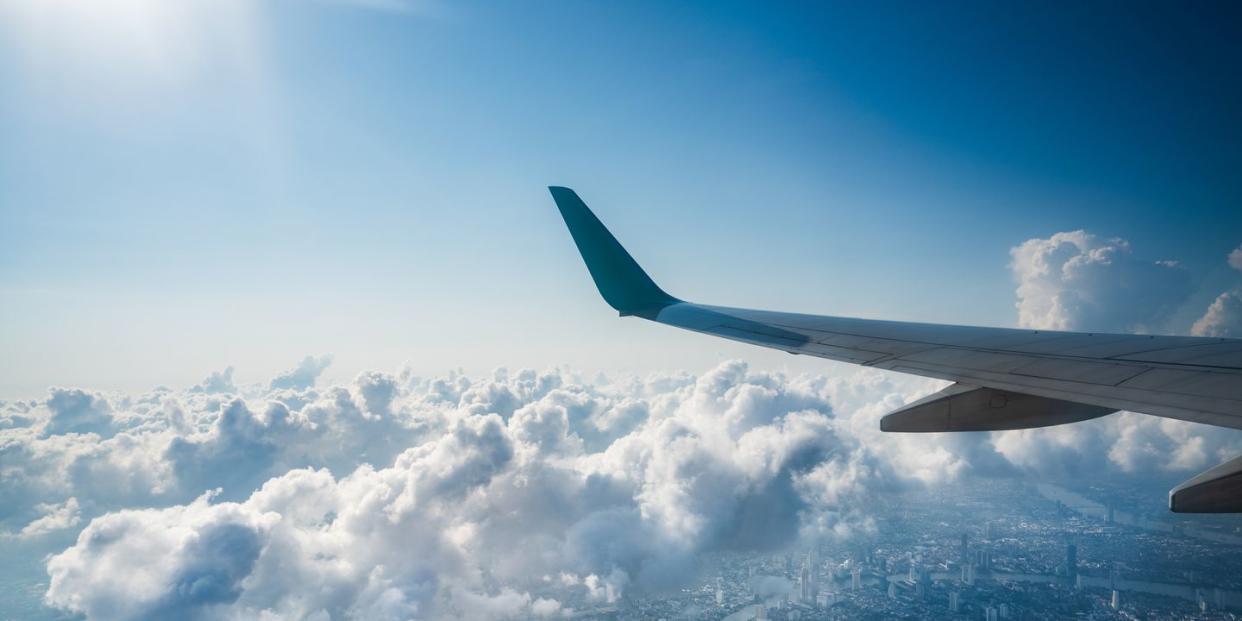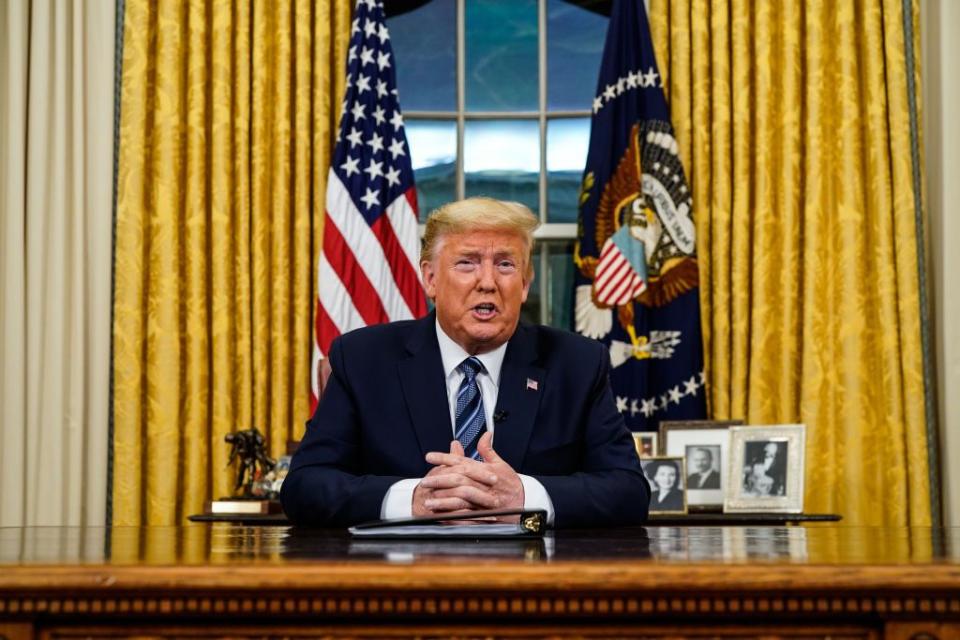What Trump's Coronavirus-Related Travel Restrictions on Europe Really Mean

Last night, President Trump announced a number of measures his administration is taking to try and slow the spread of the novel coronavirus outbreak in the United States. (Read his full speech here.) One of the most severe actions he is implementing is a suspension of travel from most of Europe to the US for the next 30 days.
But in the hours following the President's speech from the Oval Office, confusion has arisen about exactly what this travel restriction means and who (and what) it applies to. Below, we break it down:
Only European countries are included in the ban.
In his speech, Trump said, "we will be suspending all travel from Europe to the United States for the next 30 days," but more specifically, the US is restricting travel from the Schengen Area.
The Schengen Area refers to 26 European countries that have officially abolished visa and passport checks and other types of border controls. The countries included are: Austria, Belgium, Czech Republic, Denmark, Estonia, Finland, France, Germany, Greece, Hungary, Iceland, Italy, Latvia, Liechtenstein, Lithuania, Luxembourg, Malta, Netherlands, Norway, Poland, Portugal, Slovakia, Slovenia, Spain, Sweden, and Switzerland.
The Presidential Proclamation notes that "as of March 11, 2020, the number of cases in the 26 Schengen Area countries is 17,442, with 711 deaths, and shows high continuous growth in infection rates."
Also, per the document, which has been posted on the White House website, "the free flow of people between the Schengen Area countries makes the task of managing the spread of the virus difficult."
In his speech, President Trump noted that the restriction does not apply to the UK, but there are a number of other European countries that are not specifically included in the ban, namely Albania, Andora, Armenia, Azerbaijan, Belarus, Bosnia & Herzegovina, Croatia, Cyprus, Georgia, Ireland, Kosovo, North Macedonia, Moldova, Monaco, Montenegro, Romania, Russia, San Marino, Serbia, Turkey, and Ukraine.

The new rules will begin on Friday, March 13, at midnight, eastern daylight time.
But if you're an American citizen abroad, don't panic and rush to the airport. A statement from Homeland Security Acting Secretary Chad F. Wolf confirms that Trump's official Presidential Proclamation "suspends the entry of most foreign nationals who have been in certain European countries at any point during the 14 days prior to their scheduled arrival to the United States."
According to the Department of Homeland Security, the restrictions apply to "most foreign nationals," but not US citizens, legal permanent residents, or "(generally) immediate family members of U.S. citizens."
There are other more specific exceptions as well. For a more complete list of exactly who it does apply to, the full proclamation is available here.
The restriction only applies to people, not trade.
During his address from the Oval Office, Trump said that the travel restrictions would apply to trade and cargo in addition to people. "There will be exceptions for Americans who have undergone appropriate screenings, and these prohibitions will not only apply to the tremendous amount of trade and cargo but various other things as we get approval," he said.
But the President later clarified on Twitter that the travel suspension will only apply to people and not to goods. "Please remember, very important for all countries & businesses to know that trade will in no way be affected by the 30-day restriction on travel from Europe," he wrote. "The restriction stops people not goods."
Hoping to get the payroll tax cut approved by both Republicans and Democrats, and please remember, very important for all countries & businesses to know that trade will in no way be affected by the 30-day restriction on travel from Europe. The restriction stops people not goods.
— Donald J. Trump (@realDonaldTrump) March 12, 2020
In addition to Trump's proclamation, the State Department is also making new recommendations regarding travel for US citizens.
While US citizens are not included in Trump's restrictions on travel from Europe, the Statement is currently asking them to "reconsider travel abroad."
Read their most recent advisory here:
The Department of State advises U.S. citizens to reconsider travel abroad due to the global impact of COVID-19. Many areas throughout the world are now experiencing COVID-19 outbreaks and taking action that may limit traveler mobility, including quarantines and border restrictions. Even countries, jurisdictions, or areas where cases have not been reported may restrict travel without notice.
You Might Also Like

